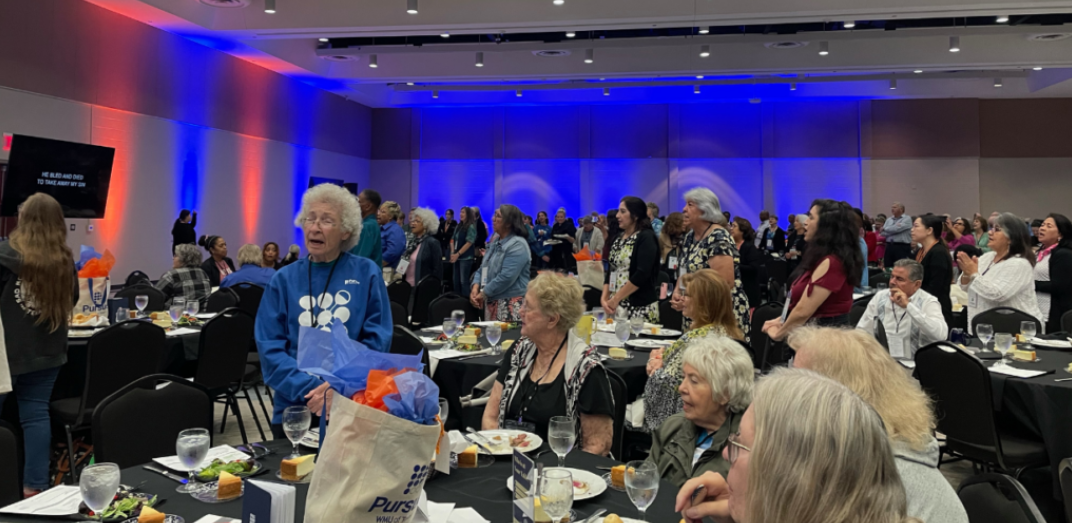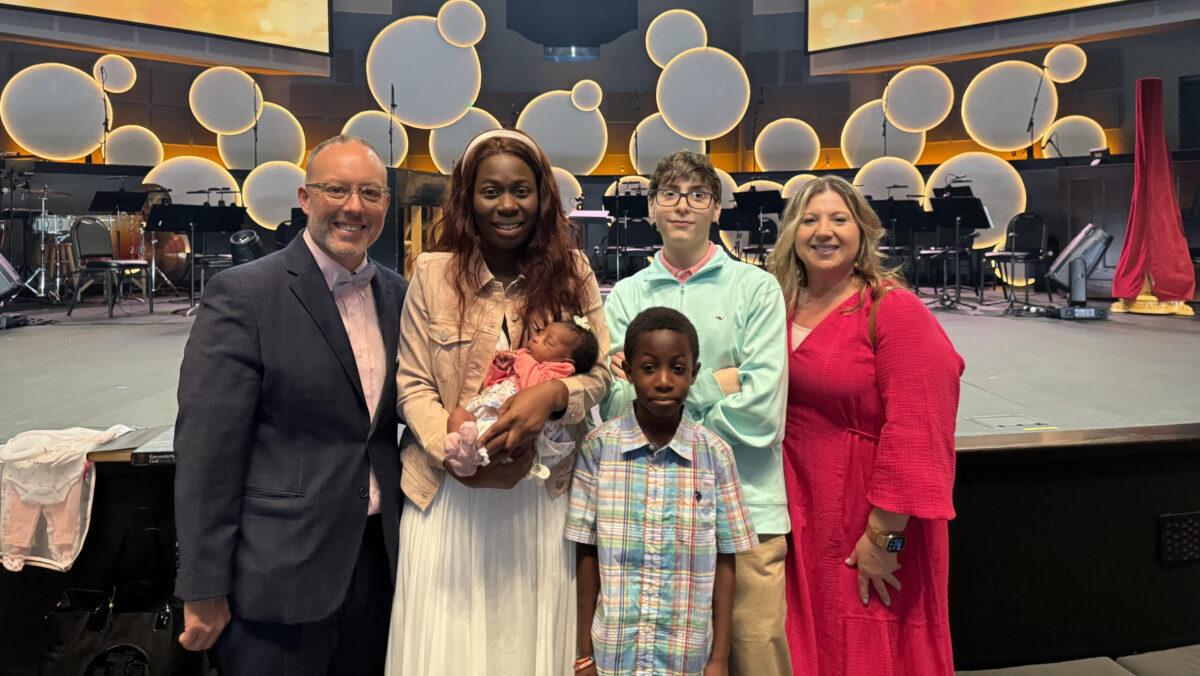Dave Walsh didn’t grow up in church. But after he and his wife, Tracey, got involved, received Christ and were baptized in their 20s, every time there was an opportunity to serve, he was there.
“The reality is that my greatest satisfaction other than helping lead people to Jesus Christ, is helping people,” Walsh told his daughter Maggie Evans during a three-part series on Christian service for TAB Amplify podcast. “And that’s how I define service, is helping someone.”
Walsh is senior pastor of Ariton Baptist Church in south Alabama and has been a pastor more than 23 years. He has always been prone to help people out, he said, but recognizes that serving others doesn’t come easily for some.
People often say to Walsh, “There’s nothing I can do.” But there is always something needed, he tells them.
One older woman showed up for work days to help by sweeping, Walsh recalled. Another man wasn’t skilled at construction but could tote materials, dig a hole or hold something in place.
“If you’re thinking, ‘I don’t have any skills,’ well, you’re wrong,” Walsh said. “Everyone can do something, whether it’s just sitting there and praying while other people are doing the work or bringing glasses of water. There’s always something.
“So service doesn’t have to be a huge thing — it’s just getting in there and helping.”
Value in service
Kelly Redding, a member of Iron City Church in Birmingham, knows there’s value in serving God however one is able. During the podcast series, Redding pointed out that service may look like setting up chairs, picking up trash, giving a meal or praying — anything as long as the task is done unto the Lord.
“When we serve the Lord, we know that He doesn’t actually need us,” Redding acknowledged. “We serve because He’s given us grace to do that and give back. I think the first and primary theology of service and the thing that sustains us is knowing that we’re not actually doing it out of our own power, but we’re serving the Lord who supplies us with the grace to serve Him.
“[Serving] is this beautiful cycle of giving back to Him who gives it in the first place.”
Pride or the thought that “it won’t get done if I don’t do it” can become a motive for service, Redding noted, so believers should examine their hearts and make sure glorifying God is their focus.
“When we make [serving] about the Lord, we make it about glorifying Him,” she said. “Almost anything can be serving. It doesn’t have to be [working in] the nursery at your church. It doesn’t have to be [helping at] the food bank. It can be serving in your home by taking care of your family. It can be faithfully praying for your pastors. Those are all things we can do that are unseen, but when we do them for the Lord they are infinitely meaningful.”
Service can be uncomfortable, inconvenient, heavy and even burdensome, Redding said, but there is sanctification in denying oneself by serving with a spirit of obedience.
“[God] provides us with the grace to serve,” she said. “He is the one that supplies our ability to do the service. Even if we start off with this unwillingness or this pride, God can refine that and sanctify that, and the more we practice that obedience, the more we find that our motives do change and our love does grow for the people we’re serving or the thing we’re doing.”
The meaning of a missionary
Clara Huff served as a Foreign (now International) Mission Board missionary in Chile for 32 years. When she felt God’s call to service at age 16, teaching English and Bible at a Christian school and working as house mother to live-in students were not what she had envisioned herself doing.
Huff’s students came from a Catholic background, with no knowledge of the Bible and no relationship with Jesus. She began to teach them about the lives of Paul and Jesus and read them John 1:9.
“When I read that verse and we talked about Jesus and what He did for us, I said to those seventh graders, ‘How many of you would like to be cleansed of your sins? Raise your hand.’ They all raise their hands, and I thought, well, this is your mission field, Clara. This is what it means to be a missionary,” Huff said during the podcast.
From that point forward she realized those students were her mission field, and loved serving the Lord in Chile. Later she became the school’s chaplain, performing outreach and evangelism to parents and organizing Bible studies and revivals to help them form a relationship with Jesus too.
As a retiree, she continues to teach English to Spanish-speakers and leads Bible studies at a medical clinic near her home in Troutman, North Carolina.
“I’m still a missionary and I try to be a model for others who are going to the mission,” she said.
For more about service check out the TAB Amplify podcast at thealabamabaptist.org/podcasts.








